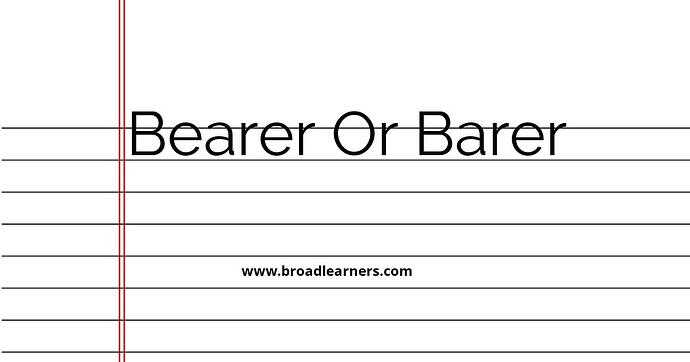'Bearer' and 'barer' are commonly confused words in English grammar. Understanding the difference between 'bearer' and 'barer' is important to use them correctly in written and spoken English.
'Bearer' is a noun that refers to someone who carries or holds something. It can also refer to a person who presents or represents something.
'Barer' is not a word in the English language. The correct word is 'barer', which is the comparative form of the adjective 'bare'. 'Bare' means without covering or clothing, and 'barer' compares two things that are more bare.
Let's take a closer look at the meanings and usage of 'bearer' and 'barer'.
| 'Bearer' | 'Barer' |
|---|---|
| The word 'bearer' is a noun that refers to someone who carries or holds something. | The word 'barer' is the comparative form of the adjective 'bare'. |
|
|
To remember the difference between 'bearer' and 'barer', it can be helpful to remember that 'bearer' is a noun referring to someone who carries or holds something, while 'barer' is the comparative form of the adjective 'bare'.
Here are some examples of correct usage:
- He is the bearer of important documents. (someone who carries or presents something)
- She is the bearer of good news. (someone who represents something)
- This room is barer than the other one. (comparing the level of bareness)
- The tree in winter is barer than in summer. (comparing the level of bareness)
Remembering the correct usage of 'bearer' and 'barer' will improve your grammar and communication skills.
